Address
304 North Cardinal
St. Dorchester Center, MA 02124
Work Hours
Monday to Friday: 7AM - 7PM
Weekend: 10AM - 5PM
Address
304 North Cardinal
St. Dorchester Center, MA 02124
Work Hours
Monday to Friday: 7AM - 7PM
Weekend: 10AM - 5PM
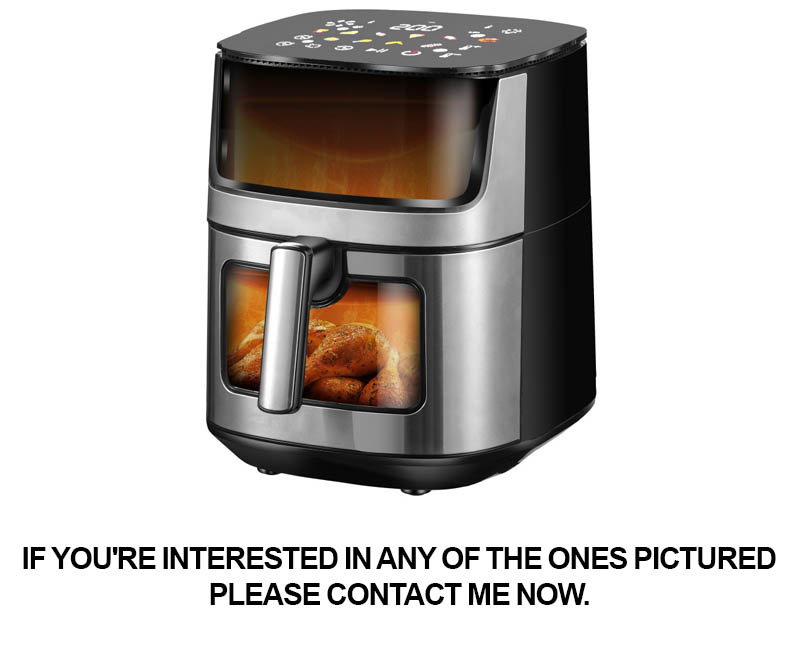
Navigating the world of air fryer manufacturers can be a daunting task, especially when you’re on the hunt for a reliable partner. Ensuring that the factory you choose not only produces high-quality products but also aligns with your business values and standards is crucial. This article delves into the intricacies of selecting the right air fryer factory, focusing on key aspects such as reputation, product quality, production capabilities, customer feedback, compliance, pricing, technical support, and the finalizing touch of a factory visit.
In the bustling world of kitchen appliances, the air fryer has emerged as a staple in modern households. This innovative cooking device promises healthier, crispy results with minimal oil. As demand for air fryers skyrockets, the need for a reliable factory to produce these devices becomes paramount. Let’s delve into why choosing the right air fryer factory is not just a preference but a necessity.
The first and foremost reason for prioritizing a reliable air fryer factory is the assurance of quality. An established factory, with years of experience, is more likely to have honed their production processes, ensuring that each air fryer meets the highest standards. This quality control is crucial in a market where consumer trust is easily lost with a single faulty product.
Moreover, a reputable factory is well-versed in the latest safety regulations and standards. Air fryers, being electrical appliances, must adhere to stringent safety measures to prevent hazards in homes. A reliable factory will not only manufacture air fryers that comply with international safety protocols but also provide customers with peace of mind.
Another critical aspect is the innovation and design capabilities of the factory. The kitchen appliance industry is constantly evolving, with new features and technologies being introduced regularly. A factory that stays ahead of the curve can offer you cutting-edge air fryers that not only perform well but also cater to the latest consumer trends.
Consistency in supply is another reason why a reliable air fryer factory is essential. The demand for air fryers fluctuates throughout the year, and a factory that can scale up or down production efficiently ensures that you never miss out on sales opportunities. This reliability extends to the supply chain as well, with a factory that can guarantee timely delivery of raw materials and finished products.
Customer support and after-sales service are often overlooked but are vital components of a reliable factory. In the event of a product malfunction or customer inquiry, a factory that offers robust support can be the difference between a satisfied customer and a negative review. This level of service can also help build a brand’s reputation over time.
Additionally, a reliable air fryer factory understands the importance of cost-effectiveness. They will work with you to find the best balance between quality and price, ensuring that you can offer competitive pricing to your customers without compromising on the product’s integrity.
Sustainability is also a growing concern in the manufacturing sector. A factory that is committed to environmentally friendly practices not only contributes to a greener planet but also appeals to eco-conscious consumers. This commitment to sustainability can be a significant differentiator in a market where consumers are increasingly making purchasing decisions based on ethical considerations.
Lastly, a reliable air fryer factory is often more adaptable to changes in the market. Whether it’s a shift in consumer preferences, new regulations, or technological advancements, a factory with a strong foundation can pivot quickly to meet these challenges. This adaptability is crucial for long-term success in a dynamic industry.
In conclusion, the importance of a reliable air fryer factory cannot be overstated. From ensuring quality and safety to driving innovation and sustainability, the right factory partner can be the cornerstone of a successful business. By carefully selecting a factory that aligns with your values and goals, you’re not just investing in a product; you’re investing in the future of your brand.

When selecting an air fryer manufacturer, it’s crucial to consider several key factors to ensure you’re getting a quality product that meets your expectations and needs. Here’s a breakdown of the essential aspects to keep in mind:
The Quality of MaterialsThe foundation of a reliable air fryer lies in the quality of materials used in its construction. Look for manufacturers that prioritize high-grade, durable materials like stainless steel for the body and non-stick coatings that are free from harmful chemicals. These materials not only ensure longevity but also contribute to the appliance’s performance and safety.
Advanced Technology and DesignAn innovative air fryer manufacturer will incorporate cutting-edge technology and design features that enhance cooking efficiency and user experience. This could include features like smart controls, adjustable temperature settings, and automatic shut-off functions. Ensure the manufacturer’s products are designed with user convenience and energy-saving capabilities in mind.
Certifications and Safety StandardsCertifications from reputable organizations such as the Underwriters Laboratories (UL) or the European Committee for Electrotechnical Standardization (CENELEC) are a must. These certifications validate that the air fryers meet strict safety and quality standards, providing you with peace of mind.
Product Range and Customization OptionsA diverse product range can indicate a manufacturer’s ability to cater to different market demands. Look for manufacturers that offer various sizes, styles, and functionalities to suit various kitchen environments and user preferences. Additionally, the ability to customize products to meet specific requirements can be a significant advantage.
Customer Service and SupportExcellent customer service is a hallmark of a reliable manufacturer. Ensure that the company provides robust support, including clear product documentation, troubleshooting guides, and responsive customer service. This is particularly important if you’re looking to purchase in bulk or have special packaging needs.
Global Reach and DistributionA manufacturer with a global presence and a well-established distribution network can offer several benefits. It ensures that you can access their products easily and that the manufacturer has a solid understanding of international market trends and regulatory requirements.
Innovation and Research and Development (R&D)Continuous innovation is key in the rapidly evolving kitchen appliance industry. An air fryer manufacturer that invests in R&D is more likely to introduce new features, improve existing products, and stay ahead of the competition. Look for companies with a track record of introducing industry-first technologies.
Financial Stability and LongevityThe financial health and longevity of a manufacturer can be an indicator of their reliability. Companies that have been in the industry for a while and have a strong financial standing are more likely to be around for the long haul, providing ongoing support and service.
Market Feedback and Brand ReputationWhat are other customers saying about the manufacturer’s products? Reading reviews and testimonials can give you insights into the real-world performance and customer satisfaction levels. A reputable manufacturer will have a positive brand reputation and a history of satisfied customers.
Pricing Structure and Value for MoneyWhile cost is an important factor, it shouldn’t be the sole determinant of your choice. Compare the pricing structure with the quality, features, and brand reputation of the manufacturer. A good air fryer manufacturer should offer a fair price that reflects the value and quality of their products.
Warranty and Return PolicyA solid warranty and a clear return policy are signs of a manufacturer’s confidence in their products. Ensure that the warranty covers the key components of the air fryer and that the return policy is straightforward and customer-friendly.
By carefully considering these factors, you can make an informed decision when choosing an air fryer manufacturer that aligns with your business goals and customer expectations.
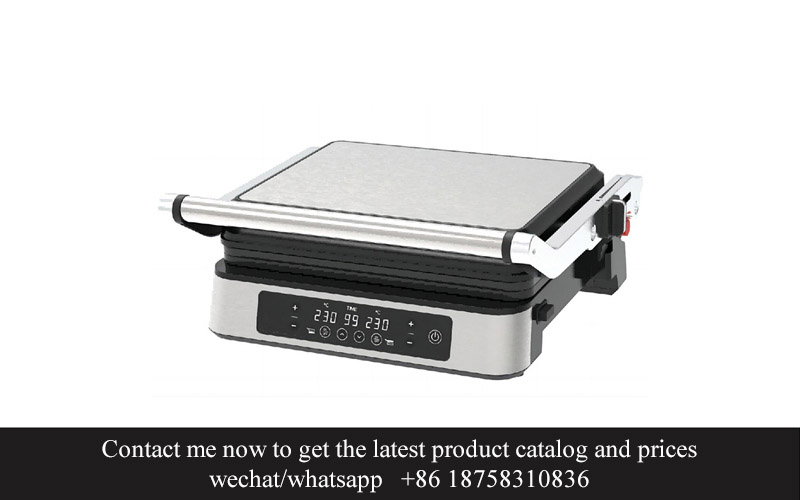
Navigating the sea of air fryer manufacturers can be daunting, but understanding the importance of their industry reputation and experience is crucial. Delving into these aspects can make or break your business relationship and the quality of the products you offer. Here’s what you need to know:
Longevity in the Market: Look for manufacturers that have been in the industry for several years or even decades. A company’s longevity often speaks to its stability and the ability to adapt to market changes. It’s a sign that they’ve built a strong foundation and a reputation for quality.
Clientele and Partnerships: Investigate who the manufacturer has worked with in the past. High-profile clients, partnerships with renowned brands, or participation in industry events can be indicative of their credibility. A diverse and respected client base can be a testament to their reliability and the value they bring to the table.
Testimonials and Case Studies: Don’t just take the manufacturer’s word for it. Seek out customer testimonials and case studies. Real-world examples of how the manufacturer’s products have performed in different settings can provide valuable insights into their performance and customer satisfaction.
Expertise in Technology and Innovation: The air fryer industry is constantly evolving, with new technologies and innovations emerging regularly. A manufacturer that stays ahead of the curve, investing in research and development, is likely to offer cutting-edge products. Their expertise in these areas can set them apart from competitors.
Certifications and Compliance: Look for manufacturers with certifications from recognized industry bodies. These certifications ensure that the products meet certain quality standards and safety regulations. Compliance with international standards can also indicate a commitment to excellence.
Industry Awards and Recognitions: Awards and recognitions from trade associations or consumer groups can be a clear indicator of a manufacturer’s standing in the industry. These accolades are often a result of years of consistent performance and innovation.
Feedback from Distributors and Retailers: Distributors and retailers who work closely with the manufacturer can offer a different perspective. They can provide insights into the manufacturer’s reliability, product quality, and customer service. Positive feedback from these stakeholders can be invaluable.
Engagement with Industry Leaders: A manufacturer that actively engages with industry leaders, participates in forums, or contributes to industry discussions is likely to be well-informed and forward-thinking. Their involvement can also indicate a commitment to staying connected with the latest trends and best practices.
Adaptability and Response to Challenges: No business is immune to challenges, and how a manufacturer responds to them can be revealing. A company that has weathered industry downturns, supply chain disruptions, or product recalls with grace and resilience is one you can trust.
Long-Term Vision and Strategy: Understanding a manufacturer’s long-term vision and strategy can give you insight into their commitment to growth and improvement. A clear, ambitious plan for the future suggests a company that is invested in its own success and, by extension, the success of its partners.
Transparency and Communication: A reliable manufacturer will be transparent about their processes, pricing, and policies. Open communication channels and a willingness to answer questions or address concerns can be a strong indicator of their integrity and professionalism.
Global Reach and Market Understanding: A manufacturer with a global presence and a deep understanding of various markets can offer products that cater to a wide range of needs. Their ability to navigate different regulatory environments and consumer preferences is a valuable asset.
By thoroughly researching the industry reputation and experience of potential air fryer manufacturers, you can make a more informed decision. This due diligence will not only ensure that you partner with a reputable supplier but also contribute to the quality and success of your own business.
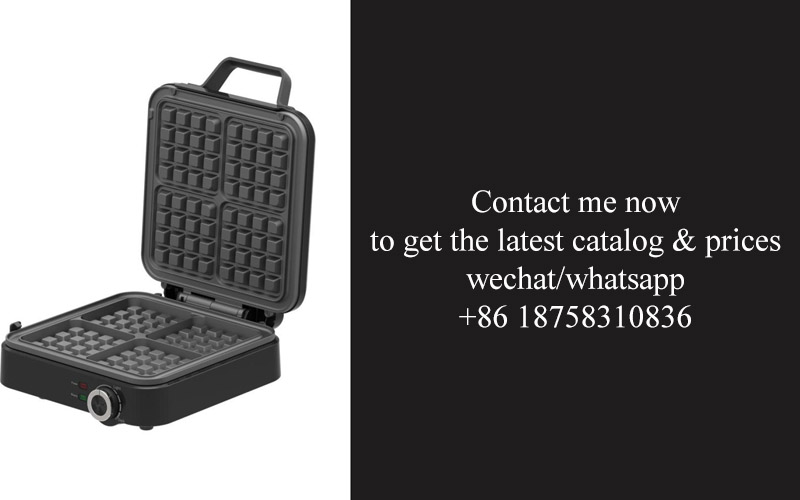
When it comes to selecting an air fryer manufacturer, the quality and safety of their products are paramount. Here are several aspects to consider in evaluating these critical factors:
The materials used in manufacturing air fryers can significantly impact their durability and performance. High-quality air fryers are often made with stainless steel or heavy-duty aluminum, which not only ensure longevity but also maintain the integrity of the cooking process. Look for manufacturers that specify the materials used in their products and prioritize those that use food-grade, non-toxic materials to prevent harmful substances from leaching into the food.
Product Testing and CertificationsA reputable air fryer manufacturer should have a rigorous testing process in place to ensure that their products meet or exceed industry standards. Look for evidence of third-party testing and certifications, such as those from the Underwriters Laboratories (UL), which guarantees that the air fryer has been tested for safety and performance. These certifications can give you peace of mind that the product has been evaluated by an independent authority.
Cooking PerformanceThe performance of an air fryer is a key indicator of its quality. A well-made air fryer should cook food evenly, with minimal to no oil, and provide consistent results. When researching manufacturers, check for reviews or testimonials from users who have experienced the cooking performance firsthand. Pay attention to any common complaints about cooking inconsistency or uneven heating, as these can be signs of poor quality control.
Build QualityThe build quality of an air fryer is a reflection of the manufacturer’s attention to detail. Look for air fryers with sturdy construction, including solid, non-slip bases, durable handles, and secure locking mechanisms. The presence of these features suggests that the manufacturer values the longevity of their products and is committed to customer satisfaction.
Safety FeaturesSafety is a non-negotiable aspect of air fryer manufacturing. High-quality air fryers include features like automatic shut-off, cool-touch exteriors, and overheat protection to prevent accidents. Manufacturers should be transparent about the safety features they incorporate into their products, and it’s essential to verify that these features are integrated thoughtfully and effectively.
Customer FeedbackOne of the best ways to gauge the quality of an air fryer is through customer feedback. Look for reviews that mention the longevity of the appliance, ease of cleaning, and the quality of the food it produces. Pay attention to any recurring issues or complaints, as these can be indicative of potential defects or poor quality control.
Design and InnovationA manufacturer that invests in design and innovation is likely to produce high-quality air fryers. Modern air fryers often come with features like digital controls, adjustable temperature settings, and preset cooking modes, which enhance user experience and cooking results. A manufacturer that continually updates its designs and incorporates new technologies is a good sign of a commitment to quality.
Warranty and After-Sales ServiceThe warranty offered by the manufacturer is a clear indicator of their confidence in the quality of their products. Look for air fryer manufacturers that offer comprehensive warranties, which can range from one to three years or more. Additionally, check for information on their after-sales service, including customer support and repair services. A strong warranty and reliable after-sales service are signs of a manufacturer that stands behind its products.
By thoroughly evaluating these aspects of product quality and safety standards, you can make an informed decision when choosing an air fryer manufacturer. Remember that a high-quality air fryer not only ensures delicious, healthy meals but also adds value to your kitchen for years to come.
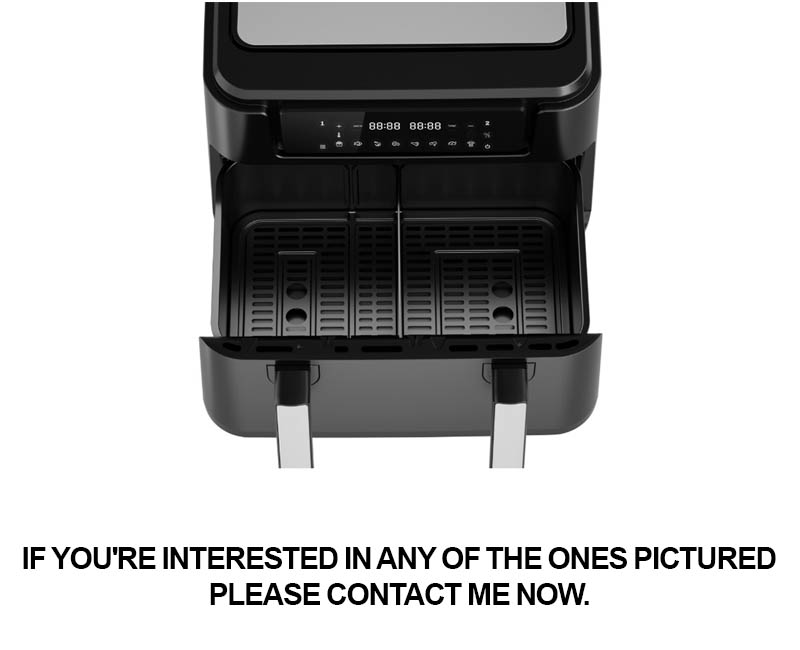
When it comes to selecting an air fryer manufacturer, understanding their production capabilities is crucial. Here’s what you need to look for:
The Scale of Production: One of the first things to consider is the scale of the manufacturer’s production. A larger factory typically means they can handle bulk orders with ease. However, it’s not just about size; it’s also about efficiency. Look for manufacturers who can maintain high output without compromising on quality.
Automation and Technology: In today’s market, automation plays a significant role in production. An air fryer manufacturer with advanced technology can ensure precision, reduce errors, and increase productivity. Ask about the types of machinery they use and how they incorporate automation into their assembly lines.
Quality Control Measures: A robust production process includes stringent quality control measures. The manufacturer should have a comprehensive system in place to check each air fryer for defects before it leaves the factory. This might involve automated checks, visual inspections, and functional testing to ensure every unit meets the highest standards.
Supply Chain Management: The efficiency of a manufacturer’s supply chain can reflect their production capabilities. Look for manufacturers who have a reliable network of suppliers for raw materials and components. A well-managed supply chain ensures a steady flow of materials, reducing downtime and production delays.
Scalability: As your business grows, so will your demand for air fryers. A manufacturer should have the ability to scale up production without sacrificing quality. They need to be able to handle increased orders without extending lead times or compromising on product specifications.
Customization Options: A manufacturer with versatile production capabilities will likely offer customization services. This is especially important if you’re looking to create a unique product or cater to specific market needs. Check if they can accommodate custom designs, branding, or even specific features that set your product apart.
Continuous Improvement: A sign of a manufacturer committed to excellence is their focus on continuous improvement. They should be investing in new technologies, training their staff, and adopting best practices to enhance their production processes. Look for evidence of their commitment to innovation and development.
Environmental Considerations: In today’s world, environmental responsibility is a key factor. A manufacturer with robust production capabilities should also be mindful of their environmental impact. They might use energy-efficient equipment, recycle materials, or implement green practices in their production processes.
Compliance and Certifications: A reputable air fryer manufacturer will comply with all relevant industry standards and regulations. They should have certifications that validate their adherence to safety, quality, and environmental regulations. This not only ensures that your product will meet market requirements but also gives you peace of mind.
Lead Times and Order Fulfillment: The manufacturer’s ability to meet lead times is a critical aspect of their production capabilities. Ask about typical lead times for standard orders and how they handle rush orders. A reliable manufacturer will have systems in place to manage orders efficiently and keep you informed about progress.
Collaboration and Communication: Finally, the level of collaboration and communication with the manufacturer is a reflection of their production capabilities. They should be open to discussing your needs, providing detailed information about their process, and being transparent about any challenges they may face.
In summary, evaluating a manufacturer’s production capabilities involves a deep dive into their scale of operation, technological sophistication, quality control, supply chain, scalability, and environmental responsibility. It’s about finding a partner who can not only meet your current needs but also adapt and grow with your business.
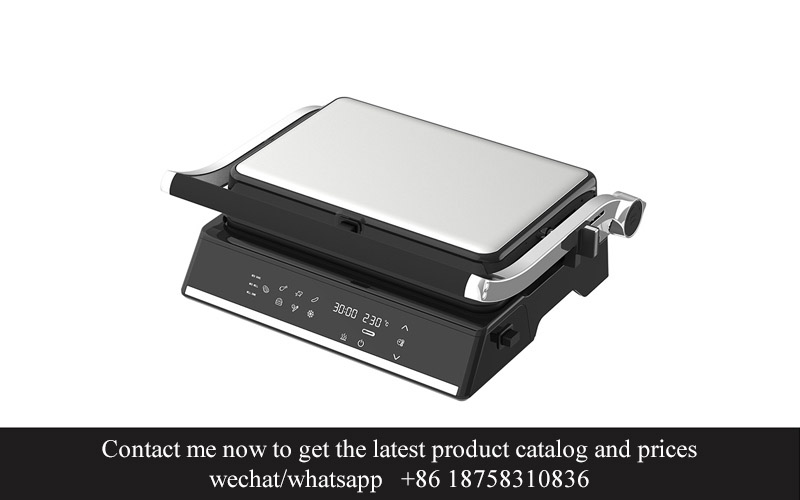
Navigating through the myriad of air fryer manufacturers, it’s crucial to delve into customer reviews and testimonials. These are the real-life experiences of people who have used the products, offering invaluable insights into the quality and reliability of the air fryers. Here’s how to make the most out of these reviews:
Identifying Genuine Reviews: Look for customer feedback on reputable review platforms or the manufacturer’s website. Genuine reviews often come from individuals who have purchased the product, as opposed to paid influencers or company employees who might have a biased perspective.
Analyzing Common Themes: Pay attention to the recurring themes in the reviews. Are customers praising the ease of use, the efficiency of the air fryer, or the health benefits of air frying? Conversely, are there consistent complaints about durability, heating issues, or noise levels? This can give you a clear picture of what to expect.
Reading Both Positive and Negative Feedback: Don’t just skim over the glowing reviews; delve into the negative ones as well. Negative reviews can be particularly revealing, as they often highlight the aspects of the product that aren’t up to par. Look for patterns in these complaints.
Cross-Referencing Multiple Sources: Don’t rely on a single source of reviews. Check out different platforms and forums to get a well-rounded perspective. Social media groups dedicated to air fryers can also be a treasure trove of user experiences.
Considering the Context: Remember that every product will have its share of detractors. Some negative reviews might be due to misuse or unrealistic expectations. However, if you notice a pattern of similar issues cropping up, it might be a red flag.
Looking for Real-Life Testimonials: Sometimes, manufacturers will showcase testimonials from satisfied customers. While these can be biased, they often provide a glimpse into how the air fryer performs in a real kitchen setting. Pay attention to the specifics mentioned in these testimonials.
Checking for Update Dates: Review the date of the testimonials and reviews. Air fryer technology evolves, and a product that was praised years ago might not be as well-received now. Conversely, a newer model might be gathering positive feedback.
Assessing the Company’s Response: Companies that value their customers often respond to both positive and negative reviews. If you see that a manufacturer addresses customer concerns and issues, it can be a sign of good customer service and a commitment to product improvement.
Understanding the Testimonials’ Tone: The tone of the testimonials can also reveal a lot. Are they overly promotional, or do they sound like genuine feedback? Authentic testimonials often convey a personal connection to the product.
Considering the Number of Reviews: While a high number of reviews can be a good sign, it’s the quality and diversity of those reviews that matter most. A product with thousands of reviews might have only a few negative ones, which is still a significant number to consider.
By thoroughly assessing customer reviews and testimonials, you can gain a comprehensive understanding of the air fryer’s performance, reliability, and overall value. This information is invaluable in making an informed decision and selecting a manufacturer that aligns with your needs and expectations.
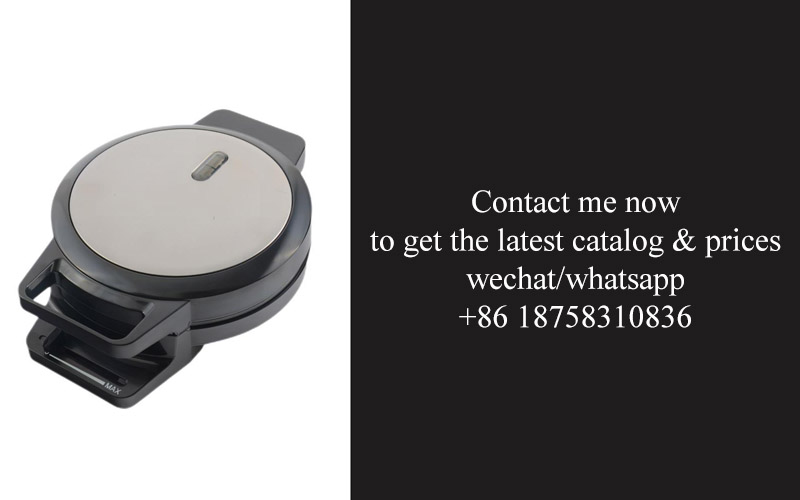
When it comes to selecting a reliable air fryer factory, it’s crucial to delve into their certifications and compliance with industry standards. This not only ensures that the products you source are up to par but also gives you peace of mind knowing that the manufacturer adheres to strict quality control measures. Here’s how you can verify these aspects:
Understanding the Relevance of CertificationsCertifications are like badges of honor for manufacturers, proving that their products meet specific criteria and regulations. For air fryer factories, certifications like CE, UL, and RoHS are essential. These certifications ensure that the appliances are safe for use, comply with electrical and fire safety standards, and are free from harmful substances.
CE Marking: A European GatewayThe CE marking is a vital certification for products sold in the European Union. It signifies that the air fryer has been assessed to meet all the necessary health, safety, and environmental protection requirements. This mark is particularly important if your target market includes European consumers, as it guarantees a level of quality and safety that is widely recognized and trusted.
UL Certification: A North American TrustIn North America, the UL (Underwriters Laboratories) certification is highly regarded. It indicates that the air fryer has been tested and meets the stringent safety standards set by UL. This certification is particularly relevant if you are planning to distribute your products in the United States or Canada, where safety is a top priority.
RoHS Compliance: Ensuring Environmental ResponsibilityThe Restriction of Hazardous Substances (RoHS) directive is an EU regulation that restricts the use of certain hazardous materials in electrical and electronic equipment. A manufacturer’s compliance with RoHS ensures that their air fryers do not contain lead, mercury, cadmium, hexavalent chromium, polybrominated biphenyls, or polybrominated diphenyl ethers. This is not only a legal requirement but also a testament to the company’s commitment to environmental sustainability.
Other Relevant CertificationsApart from CE, UL, and RoHS, there may be other certifications specific to your industry or market. For instance, the Energy Star certification in the United States indicates that the air fryer is energy-efficient, which is a significant selling point for eco-conscious consumers. Additionally, some regions may have their own safety and quality standards that you should be aware of.
Verifying the Validity of CertificationsIt’s not enough to simply ask a manufacturer if they have certifications; you need to verify their authenticity. Start by checking the certification label on the product itself. It should be clearly marked and not easily removable. You can also visit the certifying body’s website to confirm that the certification is valid and up to date.
Inspecting Compliance DocumentationA reputable air fryer factory should have a comprehensive set of compliance documents readily available. This includes certificates, test reports, and safety assessments. Requesting and reviewing these documents will give you a clearer picture of the manufacturer’s adherence to quality and safety standards.
The Role of Third-Party AuditsFor added assurance, consider arranging for third-party audits. These independent inspections can provide a unbiased assessment of the manufacturer’s compliance with international standards. The audit report can be a powerful tool in your decision-making process, offering concrete evidence of the factory’s commitment to quality.
Long-Term Relationship ConsiderationsLastly, consider the long-term implications of working with a manufacturer who has strong certifications and compliance. A company that consistently meets high standards is more likely to maintain product quality over time, reducing the risk of recalls or safety issues. This can be a significant factor in building a successful and sustainable business relationship.
By meticulously verifying certifications and compliance, you can ensure that the air fryer factory you choose is not only producing high-quality products but also doing so in a manner that is safe, responsible, and aligned with global regulations. This thorough due diligence is an investment in the reputation of your brand and the satisfaction of your customers.

Understanding the nuances of pricing and minimum order quantities (MOQs) is crucial when partnering with an air fryer manufacturer. Here’s what you need to consider:
Understanding the Pricing Structure: Dive deep into how the manufacturer structures its pricing. Are there bulk discounts for larger orders? Is there a tiered pricing system based on the complexity or features of the air fryers? Knowing this will help you budget effectively and plan your inventory.
Comparing Quotes from Multiple Suppliers: Never settle for a single quote. Reach out to several manufacturers to get a range of prices. This comparison will not only give you a better sense of market rates but also allow you to leverage the competition to secure a more favorable deal.
Factoring in Production Costs: The cost of manufacturing the air fryers is a significant factor. Ask the manufacturer to break down the costs associated with materials, labor, and any other production expenses. This insight can help you understand where your money is going and identify areas where savings might be possible.
Understanding MOQs: Minimum order quantities are the smallest amount of product a manufacturer is willing to produce. These can vary widely, so it’s important to know if the MOQ aligns with your business needs. A higher MOQ might mean better pricing per unit, but it also ties up more capital and could lead to excess inventory.
Negotiating MOQs: If the MOQ is too high for your business, try to negotiate a lower threshold. Some manufacturers might be flexible, especially if you’re looking at a long-term partnership. Be prepared to explain your business model and how a lower MOQ would still be beneficial for both parties.
Exploring Payment Terms: Payment terms can greatly impact your cash flow. Some manufacturers might offer discounts for upfront payments or extended terms for larger orders. Discuss and finalize the payment terms that work best for your business structure and financial capabilities.
Considering Long-Term Contracts: Long-term contracts can lock in prices and quantities, providing you with stability and predictability. However, these contracts often come with penalties for early termination. Weigh the pros and cons to decide if a long-term agreement is worth the commitment.
Understanding Price Adjustments: Be clear about how prices may change over time. Some manufacturers might adjust prices due to changes in the market, such as fluctuations in material costs. Ensure that you have a clear understanding of the terms and conditions under which prices can be altered.
Incorporating Volume Discounts: If you anticipate ordering in large volumes, ask about volume discounts. Some manufacturers offer discounts for orders above a certain threshold, which can significantly reduce the cost per unit.
Reviewing the Entire Agreement: Before finalizing any deal, review the entire agreement thoroughly. Pay attention to clauses related to pricing, MOQs, and any potential changes over time. It’s better to clarify these details upfront to avoid misunderstandings later on.
Seeking Legal Advice: If the agreement is complex or if you’re unsure about any part of it, consider seeking legal advice. This can help protect your interests and ensure that the agreement is fair and enforceable.
Building a Relationship: Remember that pricing and MOQ negotiations are just one part of building a successful business relationship with your air fryer manufacturer. Establishing a rapport and maintaining open communication can lead to more favorable terms in the future.
By carefully considering these aspects, you can secure the best possible deal on pricing and MOQs for your air fryer orders, ensuring a profitable and sustainable partnership with your manufacturer.
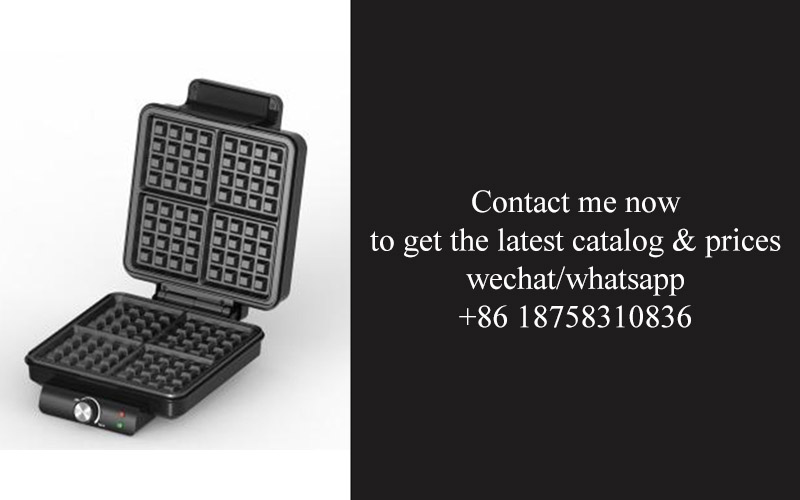
When it comes to sourcing an air fryer factory, one crucial aspect that cannot be overlooked is the availability of technical support and after-sales service. This is where the longevity and customer satisfaction of your product truly shine. Here’s a closer look at what to consider when ensuring robust support systems are in place:
Understanding the Range of Technical Support OfferedThe first thing to consider is the variety of technical support services the factory provides. This can range from basic troubleshooting assistance to comprehensive technical training for your team. It’s important to ensure that the factory offers support that aligns with your needs, whether it’s for a single product model or a range of them.
Assessing Response Times and AvailabilityThe speed at which the factory responds to technical inquiries is crucial. A factory with a quick turnaround time can minimize downtime for your business. Additionally, the availability of support during peak hours or even 24⁄7 can be a deciding factor, especially if your customers are spread across different time zones.
Training Programs for End-UsersEffective technical support also involves equipping your customers with the knowledge to use the product correctly. Look for factories that offer user-friendly training materials, such as manuals, video tutorials, and online forums. These resources can empower your customers to resolve common issues on their own, reducing the load on your support team.
After-Sales Service and Warranty CoverageA reliable air fryer factory will typically offer after-sales service, which includes warranty coverage and repair services. The duration and terms of the warranty should be clear, and the factory should have a system in place for handling warranty claims efficiently. It’s also beneficial if the factory has a network of service centers or authorized repairers to facilitate quick and convenient repairs.
Handling Returns and ExchangesThe process for handling returns and exchanges is a critical part of after-sales service. A factory that has a straightforward and customer-friendly return policy can help maintain your brand’s reputation. Ensure that the factory provides clear instructions on how to initiate a return, what conditions are required for a refund or exchange, and the timeframe within which these processes are handled.
Monitoring Customer Feedback and Continuous ImprovementA factory that values its customers’ feedback is more likely to invest in improving its technical support and after-sales service. Look for factories that have mechanisms in place to collect and analyze customer feedback. This might include surveys, feedback forms, or direct communication channels. The factory should be proactive in addressing any recurring issues and continuously enhancing its support services.
Collaboration for Custom SolutionsIn some cases, you may need a factory that can offer custom technical support solutions. This could involve integrating your product with specific software or providing tailored training for unique customer needs. The factory should be open to collaboration and be able to deliver bespoke support packages that align with your specific business requirements.
Involvement in Future Upgrades and Product DevelopmentA strong relationship with a factory means they should be willing to support you with future product upgrades and developments. This includes providing technical documentation, software updates, and any necessary training to ensure that your product remains cutting-edge and well-maintained.
By thoroughly evaluating the technical support and after-sales service offerings of an air fryer factory, you can ensure that your customers have a positive experience with your product. This not only enhances customer satisfaction but also contributes to the overall success of your business in the competitive kitchen appliance market.

When it comes to finalizing a decision with a factory visit, there are several key aspects to consider that can greatly influence your choice. From observing the production process to engaging with the team, here’s a detailed look at what to expect and what to look for during your visit.
Understanding the Factory Layout and WorkflowVisiting a factory gives you a firsthand look at how the manufacturing process unfolds. Pay attention to the layout and workflow. Is the area well-organized? Are there clear paths for materials and finished products? A factory that maintains a clean, efficient, and logical layout is likely to produce high-quality products.
Inspecting the Equipment and Technology UsedThe equipment and technology a factory employs can be a significant indicator of its capabilities. Look for modern machinery that suggests the factory invests in staying current with industry advancements. Check if the equipment is well-maintained and if there are any signs of outdated technology that could affect product quality.
Observing Quality Control MeasuresQuality control is crucial in the manufacturing process. During your visit, observe how the factory ensures that its products meet the necessary standards. Are there quality control inspectors present? Are there multiple checkpoints throughout the production line? A factory that takes quality seriously will have a robust system in place to prevent defects.
Engaging with the Factory TeamThe people working in the factory are the backbone of the operation. Engage with the team to gauge their expertise and attitude. Are they knowledgeable about the products? Do they appear motivated and proud of their work? A factory with a skilled and dedicated workforce is more likely to produce exceptional products.
Reviewing the Production ProcessTake the time to understand the entire production process. Ask questions about how materials are sourced, how products are assembled, and what measures are taken to ensure consistency. A factory that can provide detailed explanations and is transparent about its process is likely to be reliable.
Assessing the Factory’s Sustainability PracticesIn today’s world, sustainability is a growing concern. Look for evidence of eco-friendly practices, such as energy-efficient lighting, recycling programs, and the use of sustainable materials. A factory that prioritizes sustainability may also be more forward-thinking in terms of innovation and quality.
Understanding Logistics and DistributionLogistics can impact the timeliness and cost of your orders. During your visit, inquire about the factory’s logistics and distribution capabilities. How quickly can they fulfill orders? Do they have partnerships with reliable shipping companies? A factory with efficient logistics can ensure that your products reach your customers promptly.
Observing the Factory’s Cleanliness and SafetyA clean and safe factory environment is a sign of professionalism and attention to detail. Look for clean workspaces, proper safety equipment, and adherence to health and safety regulations. A factory that prioritizes cleanliness and safety is likely to produce products that meet the same standards.
Meeting with Management and Sales RepresentativesTake the opportunity to meet with the management team and sales representatives. This interaction can provide insights into the company’s values, customer service approach, and long-term business strategy. A company that communicates effectively and listens to customer needs is more likely to be a good partner.
Understanding the Factory’s Capacity and ScalabilityIt’s important to assess whether the factory can handle your current and future needs. Ask about their production capacity and whether they can scale up or down as required. A factory that can adapt to changing demands is a valuable asset.
Evaluating the Factory’s Relationship with SuppliersSuppliers play a vital role in the quality of the products. Inquire about the factory’s relationships with its suppliers. Are they reliable? Do they adhere to the same quality standards? A factory that maintains strong supplier relationships is more likely to maintain high product quality.
Gaining Insight into the Factory’s R&D EffortsResearch and development (R&D) are key to innovation. Ask about the factory’s R&D activities and any new products in the pipeline. A factory that invests in R&D is likely to be at the forefront of technological advancements and product improvements.
Understanding the Factory’s Export ExperienceIf you’re looking to export products, it’s important to understand the factory’s experience in this area. How do they handle international shipping? Are they familiar with export regulations and documentation? A factory with a track record of successful exports is better equipped to handle international business.
In conclusion, a factory visit is a critical step in finalizing your decision. By carefully observing the factory’s operations, engaging with the team, and asking the right questions, you can gain a comprehensive understanding of the factory’s capabilities and whether it’s the right partner for your business.